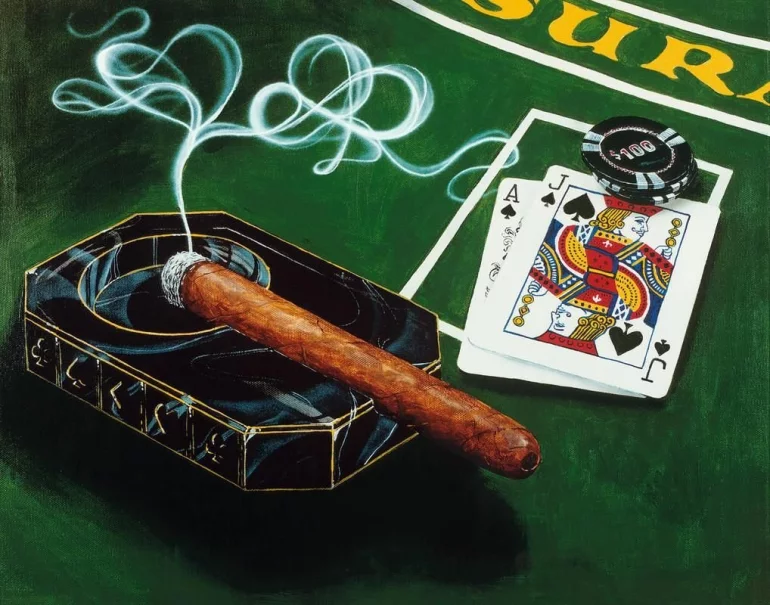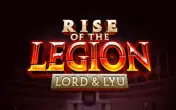Discussion on the issue of the legalization and morality of gambling and online gambling, in particular, has existed for an extended period. In this article, we aim to explore whether gambling is inherently bad or not, the reasons behind the rejection of gambling in various governments, and the factors that contribute to it. The article is written based on Western press reports and primarily deals with the US reality. However, the raised issues are relevant to everybody.
_770.webp)
Here Is What You Should Know about Gambling
So, if the alleged moral authorities tell you that gambling is bad, we offer you what you and they need to know.
In Most Gambling Games, Skills are Crucial.
The majority of people think that all gambling games are based on luck, and there is no need to be able to do something. But it is not true. There are many types of gambling games, where the skills of the gamblers play an essential role. The gambler has to know a lot about investments, be able to create a business based on his or her game, be able to act on the stock exchange, and many other things.
Some people insist that real gambling is not associated with skills. This is false. For example, poker is a game of skill, and you need to have exceptional mathematical ability to play blackjack well. However, the government is involved in organizing lotteries, which are entirely unrelated to any skill and entirely depend on luck.

Most people are unaware of this. Some people think that gambling is bad without realizing the following facts:
The majority of people, including the very rich and the middle class, buy lottery tickets and do not consider this as something shameful.
Gambling Equals Investing
A Boston University investigation found that gambling and Investing are the same thing.
- "Gambling and investment are identical in activities related to betting. Activities related to risk have been present in American culture throughout the state's history. At some point, more than a century ago, public attitudes towards two types of speculation became polarized. Investing started being considered as a socially desirable phenomenon, which was supported by law, and gambling was labeled as socially undesirable and therefore prohibited by law. This discrepancy was not based on any logical differences between these two types of activity, but on the social classes of people involved in them. It happened so that stockbrokers, stock exchanges, and their wealthy clients have benefited from this legal distinction, and the working class, gamblers, casinos, and bookmakers have lost."
And this division into "good" and "bad" games spread throughout the world from the United States.
Definition of Gambling in Dictionaries
Take a look at how dictionaries, such as Dictionary.com, Oxford Dictionary, interpret the words "gamble" and "gambling".
- "Any matter or thing involving risk or hazardous uncertainty".
- "To stake or risk money, or anything of value, on the outcome of something involving chance".
- "Take risky action in the hope of a desired result".
- "A risky action undertaken with the hope of success".
There are the following examples of using these words:
- "They gambled their money on cards".
- "This book offers a concise and to-the-point directory for anyone who gambles on the Internet or is interested in gambling on the Internet".
- "He's extremely talented and has good drive and business sense, but this is a gamble and could leave me in a bit of financial trouble if it fails".
- "He was gambling on the success of his satellite TV channel".
- "Investors began gambling on future returns, and more patterns emerged".
- "We decided to take a gamble and offer him a place on our staff".
Thus, it appears that people gamble persistently, even when they are unaware of it. Some people claim that they do not like gambling, but the majority of people in the world are gamblers, including those who think that they are not.
A more precise definition of gambling includes the following elements: a share, chance, profit, or loss. Even taking into account these corrections, most of the activities are considered as gambling, because they are associated with a particular attribute of gambling. These include critical things, such as:
- Marketing,
- Investing,
- Insurance,
- Foundation of the business,
- Drilling for oil,
- Mining.
Comparison of Gambling Activities
Any activity in the figure below includes attributes that define gambling: share, chance, profit, or loss. Only the ratio of "skill-luck" is changing.
| Name | Soft | Return to player | |||
|
|
98.65% | Play | |||
|
|
98.65% | Play | |||
|
|
98.65% | Play | |||
|
|
98.65% | Play | |||
|
|
98.65% | Play | |||
|
|
98.6% | Play | |||
|
|
97.3% | Play | |||
|
|
97.3% | Play | |||
|
|
97.3% | Play | |||
|
|
97.3% | Play |
Social and Economic Importance of Gambling
In general, humanity can not function without gambling. Gambling is neither good nor bad; it is an inherent part of our lives. Without gambling, the following things can not happen:
- Discovery of the New World by Europeans. Christopher Columbus and Spain risked greatly trying to find wealth in India, and a zigzag of success brought them to America;
- Attraction of investments by companies;
- Hedging and planning, planting crops by farmers;
- Supply of your car with oil and gasoline, as well as provision with hundreds of other things that you are using and which are made from petroleum;
- Foundation of business and economic activities;
- Invention of the light bulb, car, or computer, because inventors would not waste their time unless they hoped to make huge profits.
Elements of gambling (share, chance, profit, or loss) are used in all the above-mentioned examples of human activities.
Significance of Bets in Gambling
Excitement makes the game much more fun. There is a reason why poker is more popular than Monopoly, Scrabble, or dominoes. This is because it includes playing for money. People have been playing poker for over 180 years. Millions of people play it regularly because they enjoy it, but not because they want to earn a living playing or making money from their friends. Of course, people can play poker for free, but they prefer playing for money, because it is more interesting. Fans can watch poker competitions for free, but millions of gamblers bet cash because it enhances the pleasure.

Even the stock market provides entertainment. One investor said that he would like to be able to check the prices of his shares every day to watch as they move both up and down. He said that it would be more fun to invest in this way.
Gambling games give people the same thing as the ballet or detectives: fun and entertainment, but there is one difference: the pleasure is much sharper when you risk your money.
Educational Value
Does gambling have educational value? Here is a fragment from the book How to be a Billionaire: Proven Strategies from the Titans of Wealth:
The interest of billionaires in the specific issue of risk in card games, such as poker, is fantastic. So, HL Hunt, before entering the oil business, was forced to support his family with the help of poker winnings after losing income from two crops due to flooding. When John Kluge was a student at Columbia University, his obsession with poker attracted unwelcome attention from the authorities. And by the end of the university in 1937, Kluge saved up $7,000. This sum is equivalent to $80,000 when considering the purchasing power in 1999.

Bill Gates devoted much of his time in college to poker games before dropping out of Harvard. Carl Icahn made his first investment package by winning $4,000 for six months of his service in the United States Army while playing poker. Kirk Kerkorian provided finance for the start-up of the charter airline in the same way. And Warren Buffett used to play bridge. He was skilled enough to play on the Corporate America Team, a group of CEOs that included opponents such as a team consisting of members of the British Parliament.
There is no need to be too smart to be able to determine the relationship between success at the card table and success in financial affairs. Both situations are related to uncertainties and allow receiving the award after calculating the odds. Reckless gamblers can not beat skilled opponents within several hands in a row in poker or compete for many transactions in the business. Victory does not come without detailed analysis, willingness to take risks, and faith in your own abilities.
Do As I Say, Not As I Do
US authorities do not have a perfect attitude toward private operators of gambling games, except for Las Vegas, Atlantic City, and Indian casinos. Nevertheless, they are the most prominent promoters and advocates of the worst kind of gambling, i.e., lotteries, which are based on zero skill and one hundred percent luck. This happens because the government hates competition, and the lottery is its exclusive prerogative. Authorities try to justify this monopoly, stating that they should control this "vice" and prevent the appearance of addicted gamblers. However, they spend millions of dollars on advertising to promote this "vice". It is hypocrisy, isn't it?
The following facts are provided in the documentary film Lucky:
- "More than half of all American adults play the lottery, making it the most popular form of fee-based entertainment in the country".
- "Each year, Americans spend $7 billion on movie tickets, $16 billion on sports events, $24 billion on the books, $62 billion on lottery tickets".
The sixty billion dollar lottery industry is much larger than many American industry sectors (not only books, sports, and cinema together). The scandalous thing is that the US government heavily regulates the lottery industry.
In 2002, Emily Oster earned his PhD titled "The Great Dream: Why Do People Play Powerball?" And he found that when the Powerball lottery jackpot was at low levels, primarily poor people were buying tickets. When the jackpot grew and reached a peak, the sale of lottery tickets in rich and poor blocks was almost equal! This confirms the fact that gambling is a feature of both the poor and the rich: most people buy lottery tickets hoping that the possible gain would be their "big dream".
The Boston University Law Review document, titled "Regulating Public Morals and Private Markets: Online Securities Trading, Internet Gambling, and the Speculation Paradox," explains in detail why gambling and investing are similar. The document is large, so we provide our readers only with some interesting fragments:
- "The stereotype of an investor as a gambler seems particularly well-deserved. To gamble is to put something of value at risk on an uncertain outcome; in other words, wagers are economic choices under uncertainty. Under this broad definition, investors gamble with every purchase of a financial instrument".
- "Many gambling games and investments can be described as speculations..."
- "Many investors buy stocks for the same reasons as gamblers choose certain slot machines, lottery numbers, numbers at the roulette table, or make a bet in the bookmaker's office, or drop certain cards in poker".
The US government primarily concerns itself with avoiding financial losses. And the use of morality as an excuse when it bans private operators of online gambling is only a cover for the real reason, i.e., to exclude competition.
In addition to considerable amounts of money that the US government receives from lotteries, there are also fees and taxes that the Nevada government collects from casinos. According to the site gambling-law-us.com, fees may be more than $1,000,00,0, and taxes may be up to several million dollars. Some organizations in other industries pay the government the same money just to stay in business. We can assume that the US government wants to protect this cash cow, as license fees and taxes in other countries are insignificant in comparison to those in the US. For example, similar fees in Costa Rica provide only a few thousand dollars, and there is absolutely no income tax. It is not surprising that many US online gambling operators prefer opening their establishments there.
It turns out that the American government is waging a two-front war: as an operator of gambling and as an organization that collects license fees and taxes from gambling operators. What hypocrisy!

Here are some more quotes from the review of Boston University:
- "The federal government should prohibit, regulate, leave alone or encourage speculative [gambling]activities on the basis of the utility of the enterprise, taking into account relevant social costs of these activities, rather than on the principle of obtaining the greatest benefits by the government".
- "Despite the fact that the moralistic rhetoric prevails in the struggle against gambling, the abundance of legal gambling games in almost all countries of the world weakens the authority of the myths that the government policy on gambling is based on morality".
- "The position of the government relating to online investing is absurd. The alleged challenges for reckless retail investors are greatly understated, and for gambling the alleged problems for careless gamblers are significantly overstated".
- "The hostile position of the US government to Internet gambling is wrong, the arguments in favor of the ban are pretentious, and short-sightedness of the government in this area affects its credibility on the international scene".
- "Any attempt to alienate all kinds of gambling (starting from slot machines and ending with sports betting) from other types of investment is illusory ".
The decision to prohibit any activity should be based on a thorough analysis of costs and benefits. The gambling industry should be regulated in the same way as other activities, without taking into consideration the pretentious and contradictory arguments of morality, or as a result of discrimination against a particular social class.
Now the US poor class is discriminated against and has less freedom. Democracy is a myth. Free open markets are a myth. The rich and powerful people, who represent only one percent of society, write laws according to their desires. This is explained in the book "Do not believe everything you see or hear". Here are some quotes:
- "Although, governments have allowed many forms of gambling in the last three decades, the recent campaign against Internet gambling shows that this liberalization does not reflect new obligations to regulate gambling in the same way as other identical activities. Instead, the liberalization of gambling represents a commitment to legalize gambling games that are financially profitable for the state and federal authorities. Internet gambling is not profitable for these regulators, so it is not legalized. Moreover, stating that gambling should not be permitted, regulators appeal to moralistic arguments and do not admit that these same arguments equally apply to the activities of traditional gambling establishments, whose legalization they approved".
- "It is noteworthy that despite the fact that online investing has the same potential for a negative attitude as gambling, online investing has been accepted and even promoted as a new way to invest, whether rational or irrational, in the capital markets. Based on the understanding that online activities should not be regulated in the other ways than physical activities, SEC decided not to restrict online investing. Similarly, online games should be regulated in the same manner as brick and mortar casinos".
In due time, the US government considered operations with trading options as gambling and prohibited it, but it made an exception for this financial tool in the adoption of the anti-online gambling law UIGEA. The government had also considered futures as gambling and prohibited them once, but later legalized them, allowing farmers to hedge.
In addition, the report from Boston University explains that the insurance activity is also gambling since it also has the same three factors of gambling: share, chance, profit, or loss.
Based on the three factors mentioned above, Spain risked sending three ships in search of a New World. Oil and mining companies are the largest gamblers. They risk millions of dollars every time they drill the well. Sometimes they lose, sometimes they win. All businessmen are also gamblers. They put everything they have, or even take a loan, in the hope that their activities will bring profit, and many of them lose everything. Any business is a gambler.
Thus, most people do not realize that gambling is not immoral, as some think, and the bulk of people are regular gamblers. The definition of "gambling" in modern society has become very limited and includes mainly the activity that we associate with casinos. Many activities can also be considered as gambling, but they are selectively taken out of the category of "gambling" for society. They have just received new names, like secretaries are called "administrative assistants", waiters are "servers", and cleaners become "cleaning services managers" or "aesthetics office managers". Instead of being called "gamblers", people prefer to have names such as "entrepreneur", "venture capitalist", and "business angel". The names may differ, but the essence remains the same.
Hypocrisy of the US Government
Let's read clippings from American newspapers:
- "As soon as WTO decided that the United States violated trade rules when they prohibited US online gambling operators under the jurisdiction of Antigua, Americans withdrew their WTO commitments in relation to free trading in this gambling area. Earlier, the European Union and several other countries, including Japan, Canada and Australia had agreed to accept compensation from the United States for the prohibition of access to their markets".
- "It is time for the United States to stop the hypocritical practice that discriminates foreign online operators in the field of gambling, allowing only American operators to accept bets in certain types of gambling".
- " US laws on remote gambling and their implementation in relation to EU companies constitute an obstacle for trading, which is inconsistent with WTO rules".
- "EU authorities insist that the United States should decide how it is better to regulate Internet gambling on the market, but this must be done in full respect of their obligations under the WTO".
Antigua demands trading sanctions against the USA:
- "Antigua asked the WTO to impose sanctions against the United States for ignoring the decision of the WTO on violations of trade rules of the WTO by the United States. The government of the island state reported that it would seek compensation from the World Trade Organization in the amount of approximately $3.4 billion per year".
What do we see? The US government violates the laws of the WTO for its own benefit under the guise of the interests of consumers of online gambling establishments.
Investing in Gambling Companies
Many people claim that they dislike gambling. Nevertheless, millions of people have been investing in gambling companies regularly for a long period. Here is a list of gambling companies whose shares are purchased directly or indirectly through open-end funds, pension funds or hedge funds by millions of investors:
Pinnacle, Cryptologic, MGM, Chartwell, Wynn, Las Vegas Sands, Monarch, Multimedia Games, Melco Entertainment, Boyd Gaming, ShuffleMaster, PokerTek, Entertainment Games, Gaming, Asia Entertainment (Hong Kong company), Isle of Capri, Empire Resorts, Caesars, Nevada Gold and Casinos, Entertainment Gaming Asia, and many others.
How to deal with it? The US government encourages the development of gambling companies and at the same time prohibits their activities. Where is the logic?
Money Laundering
The US government complains that people launder money on the gambling sites. We do not justify money laundering. However, the struggle with money laundering should not be motivated by the money itself. If the country is losing money, then yes, it's a fight against money laundering. If a country gets the money then it's not a fight.
According to CalvinAyre.com, the global market of online gambling generates $30 billion in gross revenue. According to MarketWatch.com, the People's Bank of China (PBC) announced that Chinese officials had stolen $123.7 billion, which was four times the revenue from online gambling. And where is the money laundered? - Of course, in the US, Canada, Australia, and Europe. "The People's Bank of China emphasized in its report that closer collaboration with foreign governments was planned to prevent officials from escaping with stolen money".
But instead of fighting against money laundering by corrupt Chinese officials, the United States and other countries are greeting them with open arms and offering visas if they have a certain amount of money. Elite and expensive real estate in Australia, Canada, and the United States has recently been purchased by Chinese citizens. In this was,y the fight against money laundering occurs in real life.
Do Not Believe Everything You See or Hear.
People complain of the "gambling problem", they complain about the fact that users of online casinos may lose too much money. Maybe this problem exists. However, millions of Americans have lost much more money on real estate and the stock market. It is even ridiculous to compare these losses. If these self-appointed moral authorities are concerned that others lose money, they should prohibit people from purchasing investment assets or shares. They should also prohibit millions of entrepreneurs, because every year, most of them lose their businesses. They should prohibit organizing new companies, because according to the statistics 90% of them will become bankrupt! Millions of financial traders, speculators, entrepreneurs, and business owners are losing money (and earning money!) at the moment. Protect them! Prohibit them!
And let's see, who forbids us "to pick own noses". One of the opponents of online gambling, who assures us that he cares about other people who lose too much money, is Sheldon Adelson, CEO of Las Vegas Sands. Here is a quote from Forbes:
Sheldon Adelson, the fifth richest man in the United States and chief executive of casino holding, is also one of the largest political donors. The man who had hired an army of lawyers and lobbyists in Washington and state capitals, told FORBES, that he would "spend whatever it takes" to ban online gambling in America. His advocacy group, the Coalition to Stop Internet Gambling, is trying to obtain the signature of the State Attorney General under the petition against online gambling. He hired the former New York Governor George Pataki, the former senator from Arkansas Blanche Lincoln and the former mayor of Denver, Wellington Webb to make efforts to lobby his offer. But if Andelson pays them, how can we believe in their words? Of course, ignorant, ordinary people will think that Pataki, Lincoln and Webb speak according to their moral convictions and really take care about gamblers. But in fact, they say things that are indicated by the purse of Sheldon Adelson. According to Huffington Post, the average income of the head of the lobby group in the US is $1,930,000. This money is a drop in the ocean for Adelson. But for this amount you can oblige people to say or do everything. Some are even ready to sell their kidneys or kill for a less amount.
According to the NY Daily News, the salary of the governor of New York State is $179,000. Do you think that Pataki as a lobbyist for $1,930,000 would do less or more than when he was a governor, obtaining $179,000? It is a silly question, of course... People who really believe in something, will do it for free. Some of them are even willing to go to jail or die for their beliefs. If these lobbyists really believe in what they preach, then let's see how they will preach without salary".
It sounds fantastic, doesn't it? The man who earned billions of dollars from people who played in his casinos is concerned that users of online casinos might lose too much money. So why does he want to ban online gambling? Perhaps he saw what the Internet had done to many brick-and-mortar businesses, including book publishing, newspapers, and movies. Possibly, his experts believe that gambling in land-based casinos will share a similar fate. Maybe he was more concerned about the fact that non-users of online casinos might lose too much money, but he might lose too much.
They complain that children may play in online casinos. We do not justify it, but teenagers are spending more money on clothes, entertainment, cars, and beer than on gambling. Additionally, there is software that enables parents to monitor their children's online activities. Besides, other things are potentially much more harmful to children, but they are not prohibited: alcohol, knives, drugs, needles, poisonous chemicals, and violence on TV (especially in the news). All these things can be found in any home.
If the parents can not trust their children and keep online gambling away from them, how can they keep in their house all these deadly things? Have you ever heard the horror stories about teenagers who visited the site of online gambling? And how many stories have you heard about a teenager who took his father's car for a ride and had an accident? Every year, teenagers kill themselves and thousands of people in car accidents.
Why do these self-appointed moral authorities not lobby for the prohibition of cars or toxic cleaners and detergents, which become poisons for many children? What is worse? Is it worse when children gamble on the Internet or when they die from household items?

In this world, there are no perfect things without flaws. For example, mobile phones can improve the quality of life, but they also distract people and contribute to car accidents. However, cell phones are not prohibited. Driving a car is a valuable activity, but it has side effects. According to statistics, about 34,000 Americans are killed in car accidents every year. But the government does not prohibit driving. And how many people die from gambling per year? If it is really such a big problem, why doesn't the government ban lotteries, which can be considered the worst form of gambling? Why does the government encourage them?
As in any field of business, when Sheldon Adelson or the US government diminishes or eliminates competition, they create a monopoly or oligopoly. The only people who suffer from this are consumers, as they are offered fewer choices and higher prices. According to Wikipedia, approximately 50% of the gross revenue from state lotteries is allocated to the state. Have you ever seen an online casino with a 50% advantage in any game?! So next time when you hear someone say that you can lose a lot of money in online casinos, you have to ask yourself whether he cares about you or thinks of his profits. You are oppressed.
The forces acting against you, such as AGA or Sheldon Adelson, hate competition and want to limit your choices. They believe that they know what is better for you. They believe that you are not smart enough to think for yourself. There are many individuals, such as Sheldon Adelson, who lobby for their interests at the expense of ordinary people. And the government treats you like a child, because it does not believe that you can think and be responsible for your actions.
What do you think about the prohibition of gambling?
























